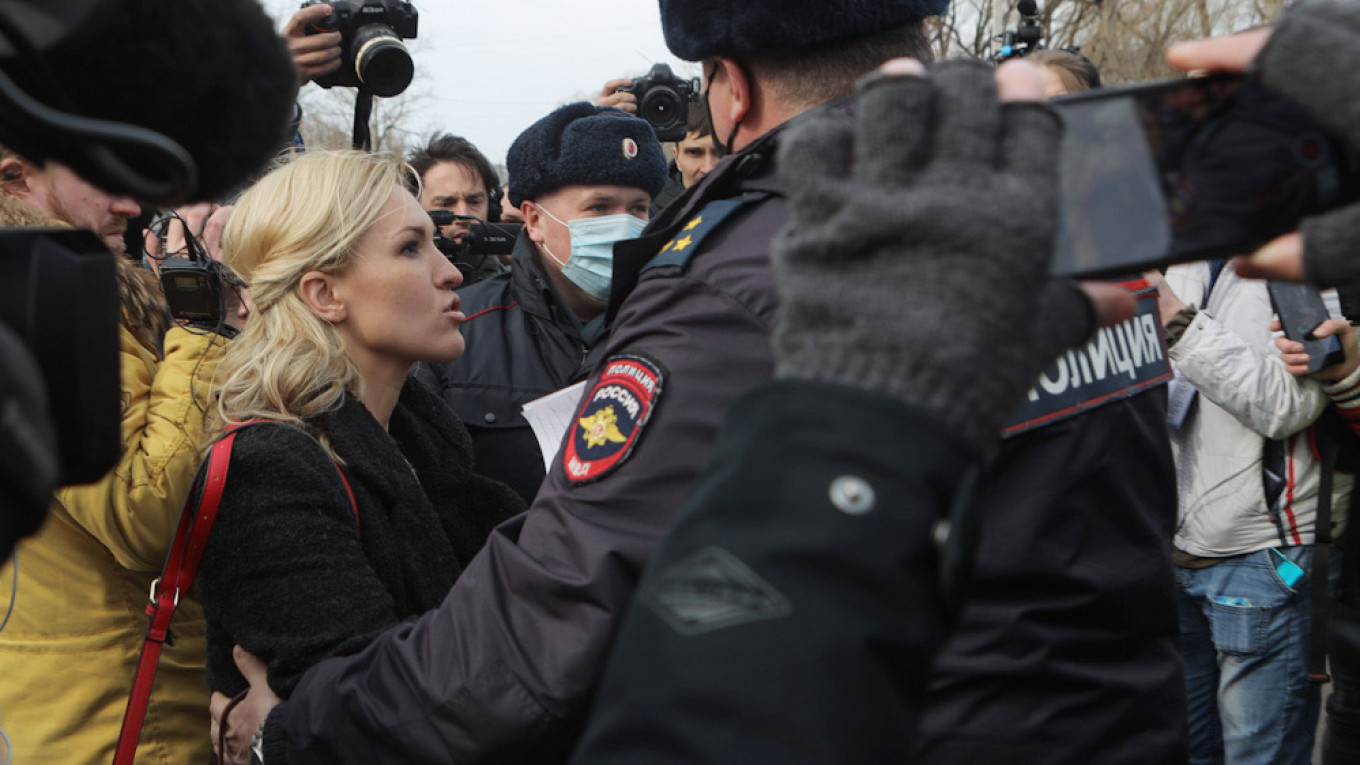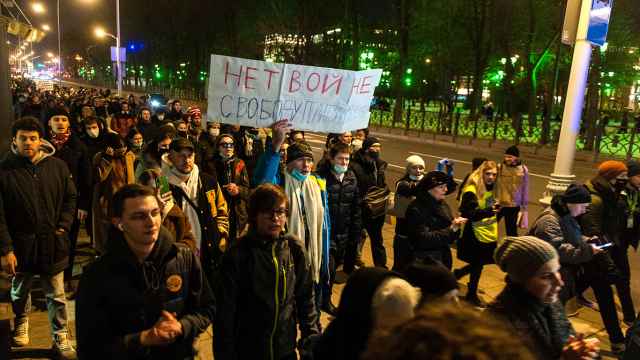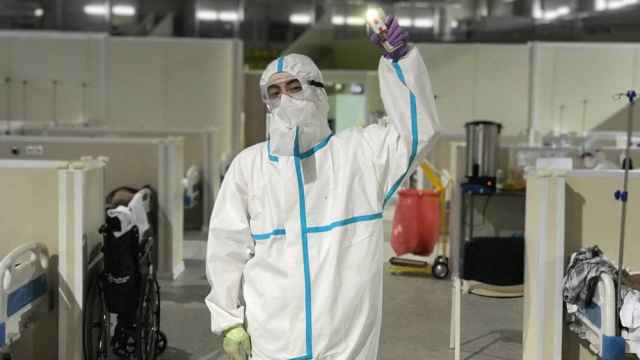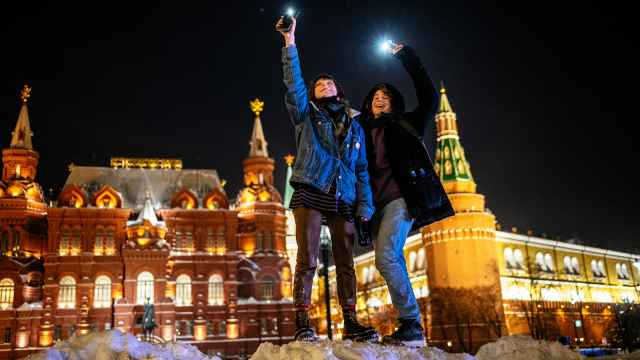Police on Tuesday detained supporters of Alexei Navalny outside his penal colony east of Moscow after they were denied access to the jailed Kremlin critic, who is on hunger strike demanding proper medical treatment.
Among those detained was Anastasia Vasilyeva, Navalny's personal doctor and head of the Alliance of Doctors medical trade union which is critical of the government, according to the group and AFP journalists at the scene.
A CNN journalist was also detained.
Police in the Vladimir region where Navalny's penal colony is located said in a statement that nine people were detained for violating "public order."
They said that around 45 people had gathered at the colony, including some 30 journalists and bloggers.
Supporters of the 44-year-old opposition politician, including several doctors in white medical coats, arrived at the town of Pokrov around 100 kilometers (60 miles) east of Moscow earlier Tuesday to demand access to Navalny, but were rebuffed.
Navalny went on hunger strike last Wednesday to demand proper medical treatment for severe back pain and numbness in both legs, saying he had only been given painkillers.
On Monday, President Vladimir Putin's most vocal critic said he was now also suffering from a heavy cough and fever and that three people from his prison unit had been hospitalized with tuberculosis.
Later Monday, pro-Kremlin newspaper Izvestia cited the local branch of Russia's FSIN prison service in reporting that Navalny had been transferred to the colony infirmary and tested for the coronavirus. The FSIN declined to comment on Tuesday.
Navalny, who survived a near-fatal poisoning last August, has lost a total of 13 kilograms (28 pounds) in the penal colony, including five kilograms over the past week, his lawyer Olga Mikhailova said.
Navalny's doctor Vasilyeva accused authorities of violating his rights by refusing to treat him properly.
"Of course I am afraid" for his health, Vasilyeva told reporters outside the penal colony.
"We are doctors — that's why we are here today. Health should be a priority," she said, stressing that Navalny must be transferred to a "normal" hospital.
'Slow death'
Navalny's wife Yulia said in an Instagram post on Tuesday that she had received a letter from the head of the Pokrov colony saying that prison officials did not have the opposition figure's passport, meaning he could not be hospitalized or released early.
She also accused the head of the colony of cooking chicken within the colony's walls in an attempt to taunt her hunger-striking husband.
"Don't you forget, boss man, that if the unthinkable happens to Alexei, his death would be on Putin's conscience and yours, but Putin will throw you under the bus and make you a scapegoat," Navalnaya wrote, addressing the penal colony chief.
On Monday, the secretary general of Amnesty International, Agnes Callamard, said that she had written to Putin, urging him to make sure that Navalny is granted "immediate access to a medical doctor he trusts."
"There is a real prospect that Russia is subjecting him to a slow death," Callamard wrote on Twitter.
Putin's spokesman Dmitry Peskov on Tuesday said he was not aware of Callamard's letter, but added that Navalny was not entitled to any special treatment.
"Naturally, we cannot talk about any special conditions for one of the convicts," Peskov said.
Navalny was arrested in January after returning from Germany, where he spent months recovering from a poisoning attack he blames on the Kremlin.
He is serving a two-and-a-half year sentence for breaching the parole terms of a suspended sentence on old fraud charges in a penal colony that rights campaigners say is known for its harsh conditions.
On Monday, Navalny said that he would continue his hunger strike despite his deteriorating health.
A Message from The Moscow Times:
Dear readers,
We are facing unprecedented challenges. Russia's Prosecutor General's Office has designated The Moscow Times as an "undesirable" organization, criminalizing our work and putting our staff at risk of prosecution. This follows our earlier unjust labeling as a "foreign agent."
These actions are direct attempts to silence independent journalism in Russia. The authorities claim our work "discredits the decisions of the Russian leadership." We see things differently: we strive to provide accurate, unbiased reporting on Russia.
We, the journalists of The Moscow Times, refuse to be silenced. But to continue our work, we need your help.
Your support, no matter how small, makes a world of difference. If you can, please support us monthly starting from just $2. It's quick to set up, and every contribution makes a significant impact.
By supporting The Moscow Times, you're defending open, independent journalism in the face of repression. Thank you for standing with us.
Remind me later.






